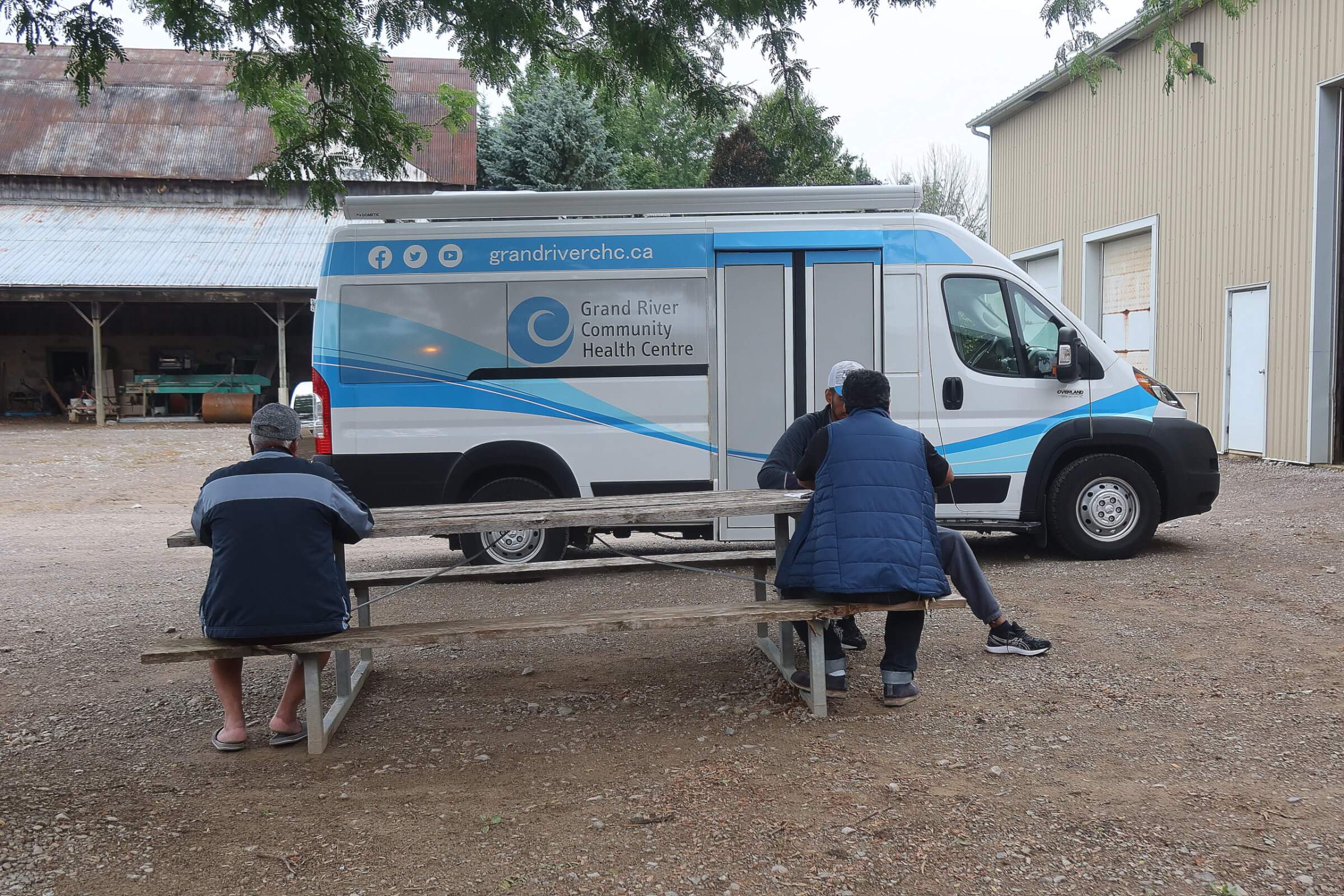With the help of many groups, organizations, and funding sources, there are an abundance of resources made available to migrant farm workers during their stay in Ontario. In this blog, we’ll take a look at a few of the great support systems in Ontario for the migrant farm workers who come to work in the farming industry each year.
Community health centres
In Ontario, community health centres (CHCs) play a crucial role in promoting and maintaining the well-being of individuals and communities by providing support for the emotional, physical, and social needs of those in their area. Examples include providing accessible primary health care, engaging in community outreach to promote healthy lifestyles, and having the resources to offer culturally responsive care.
For many years, CHCs with migrant farm workers in their community have made it a priority to ensure workers feel welcomed in the community and aren’t afraid to get the healthcare coverage they are entitled to under the contracts of the Seasonal Agricultural Worker Program (SAWP) and Temporary Foreign Worker (TFW) program.
The Grand River CHC is one of several CHCs across the province that provides resources and services to migrant farm workers. They provide primary health care clinics on farms, at mobile clinics in town centres, or virtually. Grand River CHC also continues to explore ways to address health and wellbeing concerns through social work and health promotion interventions, while offering primary health care for issues such as muscular skeletal, hypertension, diabetes, skin, sexual health, or eye issues. Spanish speaking health professionals are made available at the clinics to ensure the workers are comfortable and there is no miscommunication.
Each year, the Grand River CHC, along with many of its partner agencies, holds a health fair for farm workers. This year, the fair is set to occur on June 29. For more details please visit their website.
Migrant Worker Support Program
In 2021, to further strengthen the support for migrant farm workers, the federal government introduced the Migrant Worker Support Program (MWSP) to fund community-based initiatives for workers. The purpose of the program, as outlined by the Employment and Social Development Canada, is to ensure the health, safety, and quality of life for workers while they are living and working in Canada.
TeaMWork Windsor-Essex is a project that falls under the MWSP and currently provides funding to 11 different organizations in the Windsor, Essex, and Lambton regions. This includes language services, legal-aid, mental health services, and many more! Visit their website to learn more about the events, opportunities, and success stories that have been made possible by this amazing initiative.
Regional groups
There are other regional support groups like Migrant Matters Flamborough, which, with the help of volunteers, offer weekly Sunday gatherings for workers in the area. Their efforts are highlighted by a huge BBQ celebration in August, which is a great social setting and usually an opportunity to grab a tasty meal. There are many similar groups in other parts of the province, too.
For more information about migrant farm workers, including wages, check-out some of our other blog posts at https://www.morethanamigrantworker.ca/blog/.

